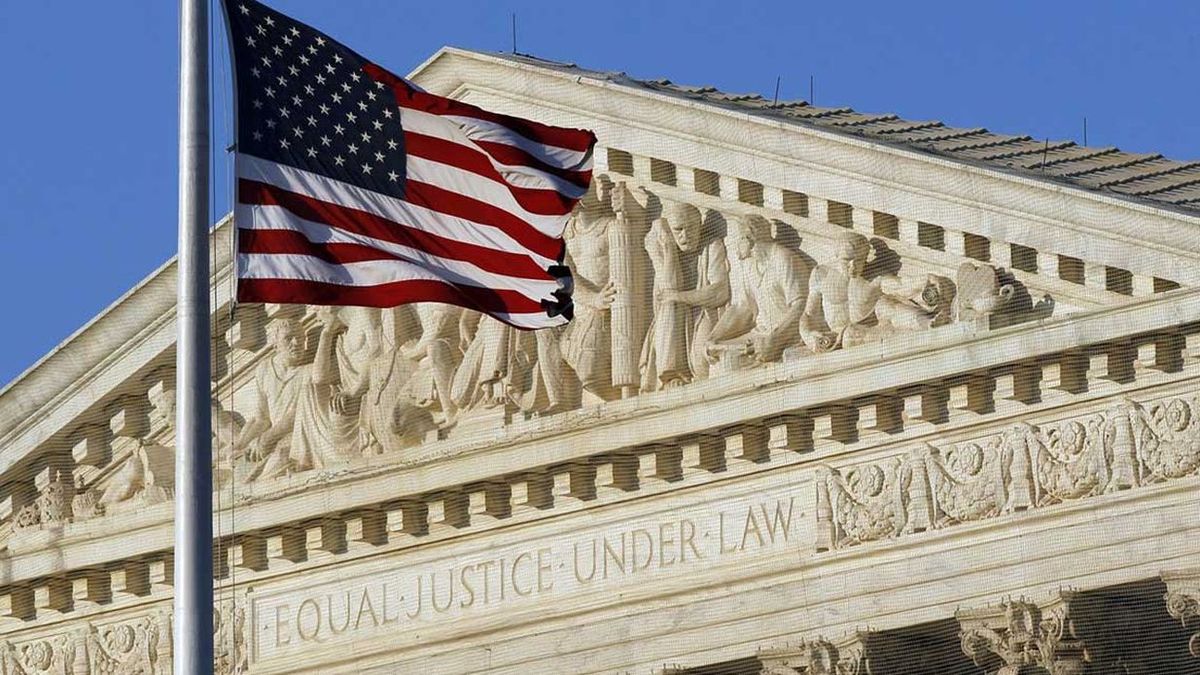It is paradoxical: a controversial reform of the electoral law to reduce the size of the Bundestag has been in force since June. Lawsuits against it are already pending. But first a decision will be made about the previous reform.
If the electoral law is too complicated and are the changes brought about by the electoral law reform of 2020 legal – this will be decided by the Federal Constitutional Court in Karlsruhe. This is not about the current electoral law, but about the previous reform.
This was pushed through by the black-red coalition at the time. 216 MPs from the FDP, the Greens and the Left, all of whom were in the opposition at the time, sued against this.
Among other things, it concerns the regulations for the allocation of seats, according to which the current Bundestag came into being in 2021. The aim of the reform was to reduce the size of the Bundestag, which had become increasingly larger due to overhang and compensation mandates.
From the plaintiffs’ point of view, the principle of equal opportunities for the parties has been violated. They also complain that the regulations are far too complicated and opaque. The Second Senate dealt with this in great detail at the hearing in April. It was discussed whether a right to vote could possibly be unconstitutional simply because no voter understands it anymore.
Specifically, the highest German court is dealing with a so-called norm control. The judges examine the constitutionality of a legal norm – in this case Article 1 Numbers 3 to 5 of the 25th Act Amending the Federal Election Act – from all relevant aspects.
Result important for repeat election in Berlin
The result is likely to be particularly important for the planned repeat election in Berlin. Because in some electoral districts the 2021 federal election may have to be repeated due to glitches on election day. Proceedings are also underway in Karlsruhe; The verdict will be pronounced on December 19th. This repeat election should actually take place according to the same rules as the original main election. However, if this was held according to unconstitutional regulations, tricky legal questions arise regarding the repeat election procedure.
There are currently 736 members of the Bundestag, more than ever before. The control variable was originally set at 598. Therefore, basically everyone agreed that there is a need for reform here. Only the “how” has been debated for years. Because everyone wants to avoid shrinking at their own expense.
One point of criticism of the 2020 reform was that overhang mandates are only compensated for by compensatory mandates for other parties from the fourth mandate onwards. Overhang mandates arise when a party wins more direct mandates than the number of seats it is entitled to based on the second vote result. The Green Party politician Till Steffen criticized in the oral hearing in Karlsruhe in April that the CSU had secured a “very strong special advantage”. The CSU candidates usually win almost all constituencies in Bavaria.
Traffic light’s own electoral law reform
The current traffic light coalition made up of the SPD, Greens and FDP has now launched its own electoral law reform. It goes much further than the previous reform and is being heavily criticized by the current opposition. Several lawsuits against this are already pending before the Federal Constitutional Court.
Against this background, the FDP, the Greens and the Left then submitted a request to suspend their procedure for the previous reform. They were of the opinion that the matter had been settled. However, the judges saw it differently and rejected the application in March – there was a public interest in continuing.
Source: Stern
I have been working in the news industry for over 6 years, first as a reporter and now as an editor. I have covered politics extensively, and my work has appeared in major newspapers and online news outlets around the world. In addition to my writing, I also contribute regularly to 24 Hours World.




